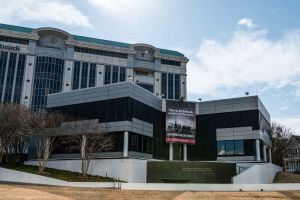Would You Be Willing to Go to Jail for What You Believe?
"I submit to you that if a man hasn't discovered something he will die for, he isn't fit to live." - Martin Luther King Jr.
On April 20, 2010, six gay rights activists were arrested after chaining themselves to the White House fence to protest the fact that the military's "Don't Ask, Don't Tell" policy has yet to be repealed by President Obama. The ringleader, Lt. Dan Choi, was also arrested the month before for the very same thing. Not surprisingly, the arrests barely made the news - owing to the fact that park police had imposed a media blackout by banning reporters from the scene of the protest and closing Lafayette Park. Even so, these gay activists were willing to risk arrest and jail to make their point.
This raises a serious question. How far would you go to stand up for what you believe? Would you be willing to get arrested and go to jail?
As a constitutional attorney, I've defended a lot of individuals over the years who were not only willing to get arrested for what they believed - they did get arrested and considered it a badge of honor. I came of age during the 1960s, when Americans of all ages staged sit-ins to protest such things as racial segregation and war. If we had a grievance with the government, we made it known, either by taking to the streets or engaging in some other form of protest - even civil disobedience.
Americans today, by and large, are as compliant as they come. While they may moan and complain about the state of affairs, few are willing to go to the mat for their beliefs or rock the boat in any way in order to challenge the status quo. Yet between the failing economy, the depressed job market, the rise of an ominous surveillance state and government officials who often seem clueless about the people's growing frustration, Americans have good reason to be unhappy with their government right now. In fact, according to a recent Pew Research Center survey, nearly 80 percent of Americans do not trust their government to do what is right. Sixty-five percent hold an unfavorable opinion of Congress. And nearly a third of those surveyed view the federal government as a major threat to their personal freedom.
So why is there so little resistance? And why is the little that is being done not more effective? Where are the marches, the sit-ins, the demonstrations? Why hasn't this brewing discontent bubbled over into the kind of civic unrest that forces change? Even the Tea Party protesters, despite accusations of incivility from those on the left, seem content to safely operate within the realms of the political system.
Is it that we don't care enough about our freedoms to risk arrest and going to jail? If prominent leftist thinkers such as Noam Chomsky and Naomi Wolfe are correct, we may well be moving toward a fascist government - even under the Obama administration. If so, then what's left for us to do when speech is not enough? How can we get the government to change and protect our freedoms?
Simply put, there are times when it is necessary to rage at injustice. Martin Luther King Jr. changed history by doing so, which in turn gave rise to a social revolution. King was the ultimate radical, a self-styled extremist for love and nonviolence who operated under the belief that "injustice must be rooted out by strong, persistent and determined action" and that "freedom is never voluntarily given by the oppressor; it must be demanded by the oppressed."
It was 47 years ago, in April 1963, that King wrote his famous "Letter from a Birmingham Jail" after being arrested, jailed and then subsequently criticized for his part in a planned non-violent protest against racial segregation in Birmingham, Alabama. King responded with a blistering indictment of those so-called moderates who are "more devoted to 'order' than to 'justice'" and "the appalling silence of the good people," which he equated with the "hateful words and actions of the bad people."
These are strong words from a man who not only faced down club-swinging cops, snarling police dogs and fire hoses shooting out crushing streams of water in a later march on Birmingham but, amazingly enough, enlisted schoolchildren, some as young as 6 years old, to do the same. King was soundly criticized for using youngsters as troops. As Robert F. Kennedy, then serving as U.S. Attorney General, stated, "Schoolchildren participating in street demonstrations is a dangerous business. An injured, maimed or dead child is a price that none of us can afford to pay."
"The Negro children of Birmingham, however, kept right on marching," reported Time. Clearly, King disagreed with Kennedy's assessment. "The eyes of the world are on Birmingham," King urged his followers after the first day's demonstrations resulted in 250 youngsters being jailed. "We're going on in spite of dogs and fire hoses. We've gone too far to turn back." And go on they did, reported Time, "despite all they were up against, despite hoses and clubs and police dogs and hate and folly."
Whether you agree with King's methods or not, there can be no denying that his use of militant nonviolence, creative extremism and civil disobedience was extremely effective. Then again, King believed deeply in the cause he was fighting for and was adamant about using only the weapons of love and nonviolence in his crusade for freedom - so much so that he was willing to risk not only his own life but the lives of his youngest followers.
King was also a master strategist who understood that government is reactive not proactive. In other words, government moves only when we make it move. As King wrote in an article that was published after he was murdered:
We need to put pressure on Congress to get things done. We will do this with First Amendment activity. If Congress is unresponsive, we'll have to escalate in order to keep the issue alive and before it. This action may take on disruptive dimensions, but not violent in the sense of destroying life or property: it will be militant nonviolence.
King knew very well that politicians could not be relied upon for any real solutions. Meaningful change, if it was to be effected, depended on the involvement and activism of the citizenry. That's why King encouraged a form of activism that was disruptive but nonviolent - militant nonviolence.
Sadly, activist movements today pale in comparison, and that restraint may lead to our downfall, not only in terms of failing to challenge the status quo but in bottling up frustrations that would be better expressed. As King explained in his "Letter from a Birmingham Jail":
Oppressed people cannot remain oppressed forever. The yearning for freedom eventually manifests itself, and that is what has happened to the American Negro....If one recognizes this vital urge that has engulfed the Negro community, one should readily understand why public demonstrations are taking place. The Negro has many pent up resentments and latent frustrations, and he must release them. So let him march; let him make prayer pilgrimages to the city hall; let him go on freedom rides -and try to understand why he must do so. If his repressed emotions are not released in nonviolent ways, they will seek expression through violence; this is not a threat but a fact of history. So I have not said to my people: "Get rid of your discontent." Rather, I have tried to say that this normal and healthy discontent can be channeled into the creative outlet of nonviolent direct action. And now this approach is being termed extremist. But though I was initially disappointed at being categorized as an extremist, as I continued to think about the matter I gradually gained a measure of satisfaction from the label. Was not Jesus an extremist for love: "Love your enemies, bless them that curse you, do good to them that hate you, and pray for them which despitefully use you, and persecute you." Was not Amos an extremist for justice: "Let justice roll down like waters and righteousness like an ever flowing stream." Was not Paul an extremist for the Christian gospel: "I bear in my body the marks of the Lord Jesus." Was not Martin Luther an extremist: "Here I stand; I cannot do otherwise, so help me God." And John Bunyan: "I will stay in jail to the end of my days before I make a butchery of my conscience." And Abraham Lincoln: "This nation cannot survive half slave and half free." And Thomas Jefferson: "We hold these truths to be self evident, that all men are created equal..." So the question is not whether we will be extremists, but what kind of extremists we will be. Will we be extremists for hate or for love? Will we be extremists for the preservation of injustice or for the extension of justice? In that dramatic scene on Calvary's hill three men were crucified. We must never forget that all three were crucified for the same crime - the crime of extremism. Two were extremists for immorality, and thus fell below their environment. The other, Jesus Christ, was an extremist for love, truth and goodness, and thereby rose above his environment. Perhaps the South, the nation and the world are in dire need of creative extremists.
Sadly, almost half a century after King penned those words from his solitary cell in a Birmingham city jail, we are still in dire need of creative extremists.




























